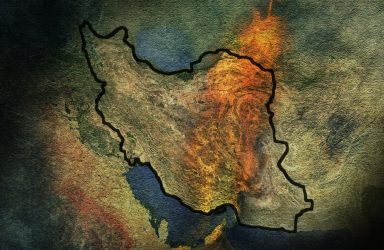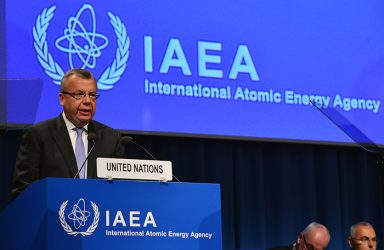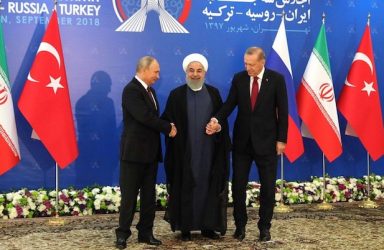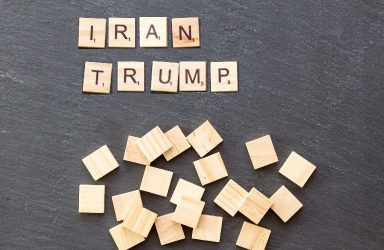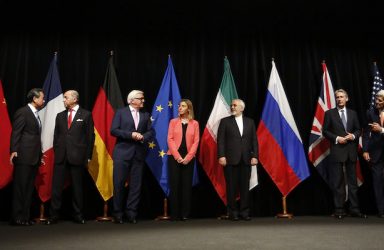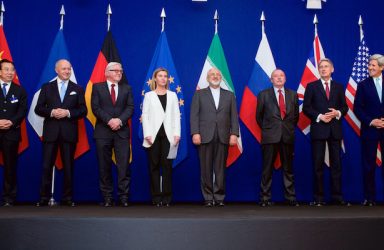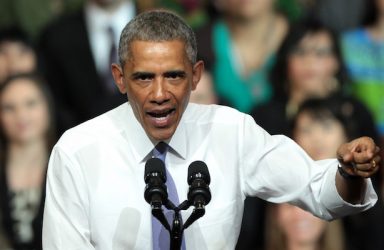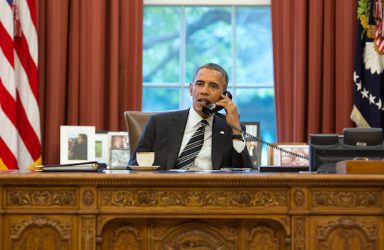Interview – Frank Sauer
Frank Sauer discusses the Iran Nuclear Deal, the ‘nuclear taboo’ and deterrence, nuclear sharing, and several treaties on nuclear weapons, including the New START, NPT, and TPNW.
Trump is Right About Iran, Yet Wrong
President Trump has inherited a limited range and scope of choices in confronting Iran. Right or wrong, he has no option in dealing with Iran but to deal with Iran.
Becoming a ‘Responsible Power’?: China’s New Role During the JCPOA Negotiations
When U.N. requirements were not met by Iran, China allowed stricter sanctions to be passed. Each time, China’s goal was to have Iran come back to the negotiating table.
Hegemonic Aspirations and Middle East Discord: The Case of Iran
Iran plays a major role in regional issues and will continue to do so in order to protect or uphold the safety and security of the Shia Crescent. It is increasingly becoming the regional hegemon.
The United States’ “Withdrawal” from the Iran Nuclear Deal
The Iran nuclear deal is a novel solution to a problem in international relations with the potential to lead to war. The US had no basis for its decision to abandon it.
An International Relations Perspective on the Iran Nuclear Deal
The deal problematically upheld the image of Iran going nuclear as a horror scenario to be prevented, cementing the securitization of Iran’s case without re-politicizing Israel’s nuclear status.
Interview – Michael Stephens
RUSI’s Michael Stephens answers questions on the recent referendum in Iraqi Kurdistan, Trump’s Middle East policy, developments in Syria and the Iran nuclear deal.
Diplomacy
In today’s interconnected world, effective and skilful diplomacy is vital to ensure that humankind can navigate an ever-growing list of shared challenges that may be our undoing if left unresolved.
The Legacy of the Obama Administration
During Obama’s tenure America’s global leadership has declined to its lowest ebb leaving some allies to wonder how much they can rely on the US.
Dealing Reform: Iranian Domestic Politics after the Nuclear Deal
The success of the US-Iran nuclear talks shows the limits of the Obama doctrine in accomplishing the kind of social change that many reformists would like to see.

